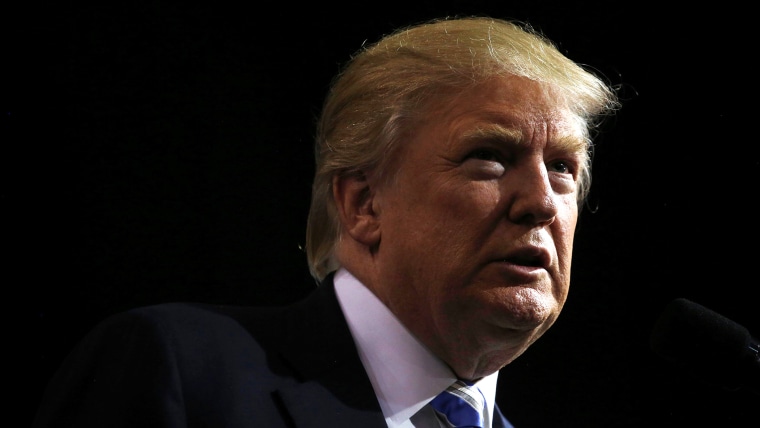The globe is dotted with such potential conflicts. Mr. Trump’s companies have business operations in at least 20 countries, with a particular focus on the developing world, including outposts in nations like India, Indonesia and Uruguay, according to a New York Times analysis of his presidential campaign financial disclosures.What’s more, the true extent of Mr. Trump’s global financial entanglements is unclear, since he has refused to release his tax returns and has not made public a list of his lenders.
One of the key challenges at this point is simply keeping track of all of the problematic areas.
Scotland is certainly near the top of the most controversial conflicts -- Trump has already admitted discussing one of his foreign investments with a foreign official since Election Day -- and
Argentina isn't far behind.But let's not forget
Turkey. And
Georgia (the country, not the state). And the
Philippines. And
India. And
Brazil. And
Saudi Arabia.Meanwhile, we still don't know why Trump had his daughter, who'll help run his business enterprise, join him for a meeting
with the Japanese prime minister -- or why Ivanka Trump also chatted
with the Argentinian president.For his part, Trump isn't exactly denying any of the allegations, so much as he's insisting that existing laws place no real limits on his private-sector activities.Indeed, when he sat down with the
New York Times last week, the president-elect
said, "As far as the, you know, potential conflict of interests, though, I mean I know that from the standpoint, the law is totally on my side, meaning, the president can’t have a conflict of interest.... [I]n theory, I can be president of the United States and run my business 100 percent."Later in the interview, he
added, "[T]he president of the United States is allowed to have whatever conflicts he wants."Feel better about potential corruption in the Trump White House?The way the system is designed to work, shame is supposed to create powerful incentives that presidents and presidents-elect should want to honor. But as
Rachel explained on the show the other day, Donald J. Trump has his own preferred approach:
"The president is not necessarily bound by the same conflict of interest laws as other members of the government, rules that say you can't use the government or use your office to enrich yourself. One of the greatest barriers to that kind of impropriety for a president is supposed to be the desire of a president to avoid the appearance of any kind of impropriety."In other words, the seat belt here is supposed to be shame. Shame is supposed to guard the office from looking like it could be bought and paid for.... This system was not designed for somebody who doesn't mind violating the ethical expectations around the presidency. This system is not designed for somebody who doesn't care if people know that he is self-dealing."
Ordinarily, we might expect reckless politicians, having thrown away their ethical compass, to at least
try to hide their shady actions, but Trump is a man without shame. He's aware of the blatant conflicts, which he doesn't deny, and responds to questions by boasting that he can act with impunity because he'll soon be the president.And so, congressional Republicans, the nation turns to you and wonders what kind of oversight, if any, Americans can expect. How comfortable are House and Senate GOP leaders with a president-elect who appears to be eager to use his office to enrich himself and his family? How far will elected officials lower the bar for propriety in order to accommodate the suspected con man who'll soon occupy the Oval Office?The
Washington Post's E.J. Dionne Jr.
added today, "If Trump wasn’t ready to put his business life behind him, he should not have run for president. And if Republicans — after all of their ethical sermons about [Hillary] Clinton — do not now demand that the incoming president unequivocally cut all of his and his family’s ties to his companies, they will be fully implicated in any Trump scandal that results from a shameful and partisan double standard."
